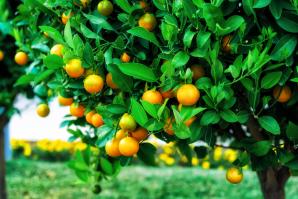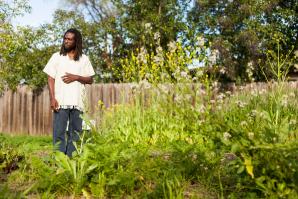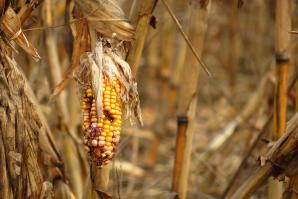Latest Stories

Saving California’s Citrus
Placer County citrus growers advised on how to fight a bacterial disease fatal to their trees
Mandarins dominate commercial citrus production in the foothills, where oranges, lemons, limes, grapefruit and kumquats also flourish. Last month, citrus growers in Placer County and surrounding regions were given a dire warning to safeguard their industry: Do not move outside citrus into this county — no matter where it is from.

A Whole Lot of Rain Is Finally Heading Toward Parched California
Ever since a monster El Nino was detected in the Pacific last year, Californians have been anxiously waiting for it to dump torrents of rain on the drought-scarred land. Now, after weeks of frustration, it appears that those expectations will be met.

A Growing Green Debt?
As PACE takes off, realtors warn that unwary homeowners are complicating their finances
Call it the tale of two turfs. In summer 2014, 27-year-old Benjamin Triffo wanted to do something about his dry, unattractive yard. He owns a four-bedroom, four-bath duplex in Elk Grove that he’d bought in 2011, and his sprinkler lines were broken. But with the state passing rules last July that would allow fines for overwatering, Triffo quickly figured out that replacing his system and re-sodding would be like attaching a drain line to his checkbook.

Infographic: Where is the Money
Rural tourism in the Capital Region
In 2014-15, hotel occupancy, tourism spending and travel-generated jobs all reached five-year highs. But in such a mercurial industry — underscored in recent years by drought and wildfires — regional leaders and business owners have had to get creative to keep dollars coming in.

Drought-Weary Eyes Watch California’s Normal Winter Unfold
California is having a pretty normal winter, give or take a degree here and a bit of snow there. Since the entire state is abnormally dry or in drought, it’s been a while since that happened. The trouble is, normal might not last.

The Battle Upstream
Environmentalists work to preserve Chinook habitat
On the Yolo Bypass, just northwest of Sacramento, scientists and state and federal agencies are collaborating on a plan they hope could save California’s wild salmon.

Chevron CEO Blasts California Environmental Laws Governor Touts
As Governor Jerry Brown is in Paris urging other political leaders to follow his lead in curbing global warming, the chief executive of California’s largest oil company said the state’s policies “unambiguously raise energy costs and do nothing about greenhouse-gas emissions.”

Sacramento Urban Farmer to Start Food Academy after Visit to Milan
South Sacramento urban farmer, Chanowk Yisrael, wants to see local food systems improve. Eight years ago, he started growing organic food for his family and eventually launched the Yisrael Family Urban Farm in Sacramento’s historic Oak Park neighborhood. Now, he’s expanding that vision to motivate Sacramento youth to become more engaged in changing our local food system — announcing today that he’ll be partnering with Slow Food Sacramento to charter the city’s first Food Academy.

Stop Sheltering Farmers From Supply and Demand
Editorial: Better markets to relieve California's drought
California’s cities are adapting to the state’s worst-in-a-century drought, hitting aggressive targets for water reduction set by Governor Jerry Brown in April. The bigger challenge is to change the behavior of farmers, who consume 80 percent of the state’s water and have so far been spared the same magnitude of restrictions.



